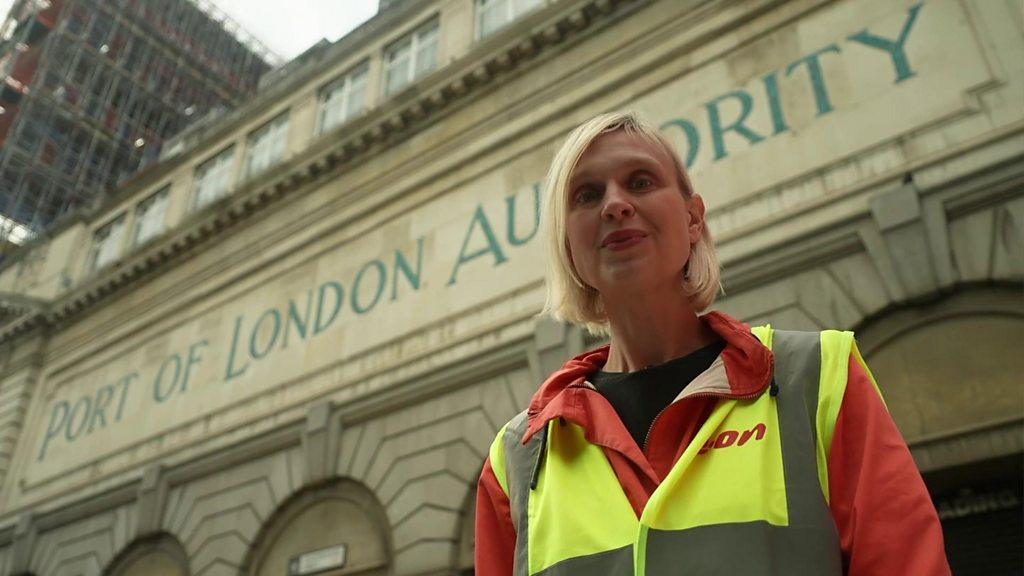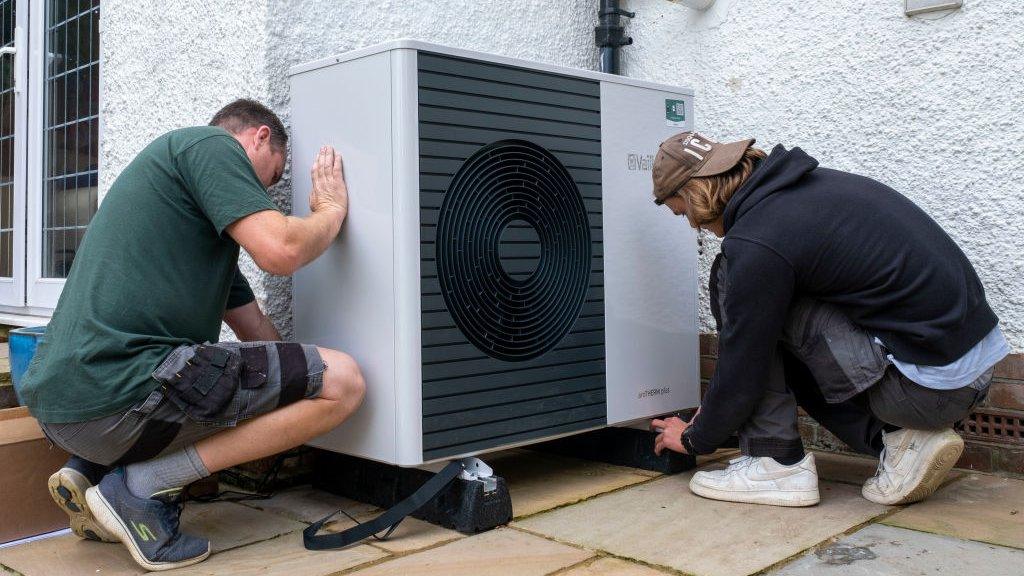Should I get a heat pump for my home?
- Published
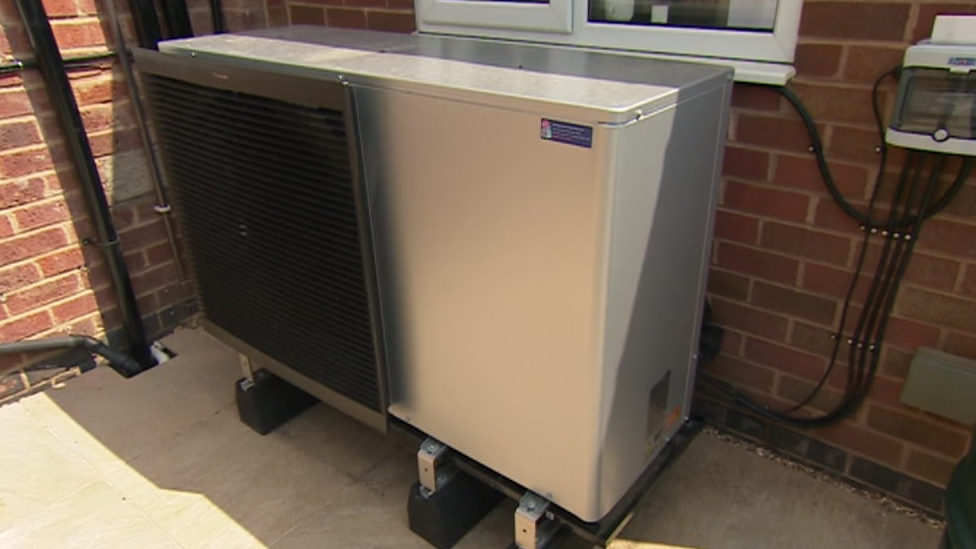
Almost two million homes in the West Midlands could be suitable for heat pumps
The government is very keen for us to replace our old gas boilers with brand new electric heat pumps.
For ministers it's a useful way to reduce carbon emissions and hit climate change targets.
For consumers you get a green glow but also in theory get all the heating and hot water of a gas boiler with substantial savings.
One heat pump owner we talked to said he's saving about £40 to £50 each month.
Yet I'm sure you've heard some stories about them not working when they are too cold or being noisy or not heating a house along with its hot water well enough.
We wanted to find out what the honest heat pump picture is.
So we went to the Installer Show at the NEC to talk to the trade and asked Octopus Energy to crunch the numbers and work out how many homes in the Midlands could potentially make the switch.
Octopus don't just just provide energy any more, they are training their engineers to install everything from heat pumps to solar panels.
They believe in the Midlands almost two million homes could swap to a heat pump.
At this point you might be saying "but David just what is a heat pump"?
Well the the answer to that question is always "it works like a fridge in reverse".
A fridge sucks up heat and gets rid of it to keep its inside cool and a heat pump sucks up heat and keeps it inside to keep things warm.
They are also much more efficient than boilers and safer, with a longer life.
The upshot of all this is if you want a heat pump you need a pretty well insulated home, space about the size of a large bike outside and possibly an upgrade to your existing radiators.
It will also be a chunky amount of cash - on average about £8,000, according to Octopus Energy - although there is a government grant to help.
In the past I'll be totally honest I've seen some older heat pumps that make quite a rattling fan noise and which had to be supplemented by firing up a wood-burning stove on really cold days.
(Something which in pollution terms slightly negates the point of the heat pump in the first place).
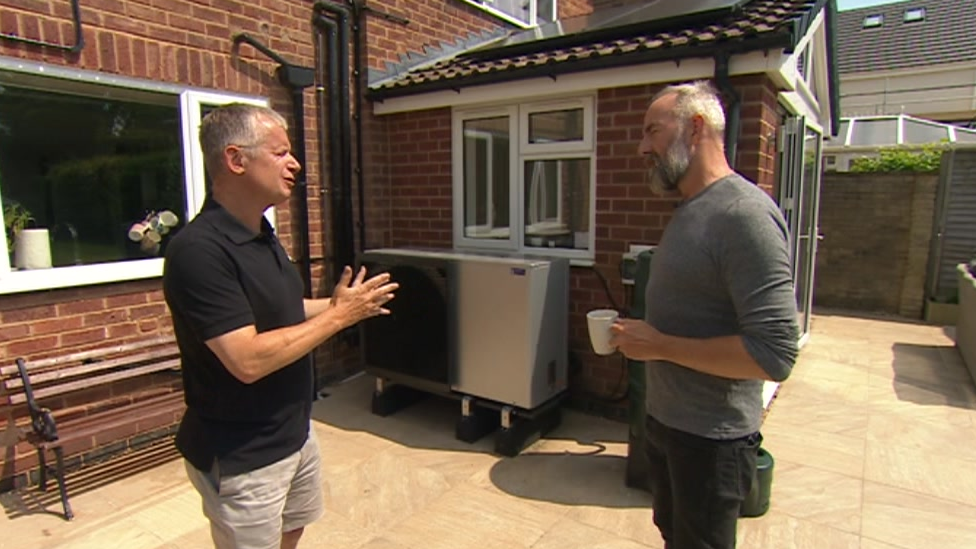
Alastair Kelly said his heat pump was no more noisy than a fridge
Alastair Kelly installed a modern heat pump at his house near Solihull earlier this year, during that really cold snap.
He reassured me the house was more than warm enough when the temperature was so cold.
The installation involved pipework on the rear of the house and some larger radiators, which is quite common, as well as boosting the insulation in their loft.
The heat pump itself is bigger than I expected, roughly the dimensions of a bicycle or maybe two large, if slim, suitcases.
Mr Kelly said it made about the same noise as a domestic fridge which is also quieter than I expected.
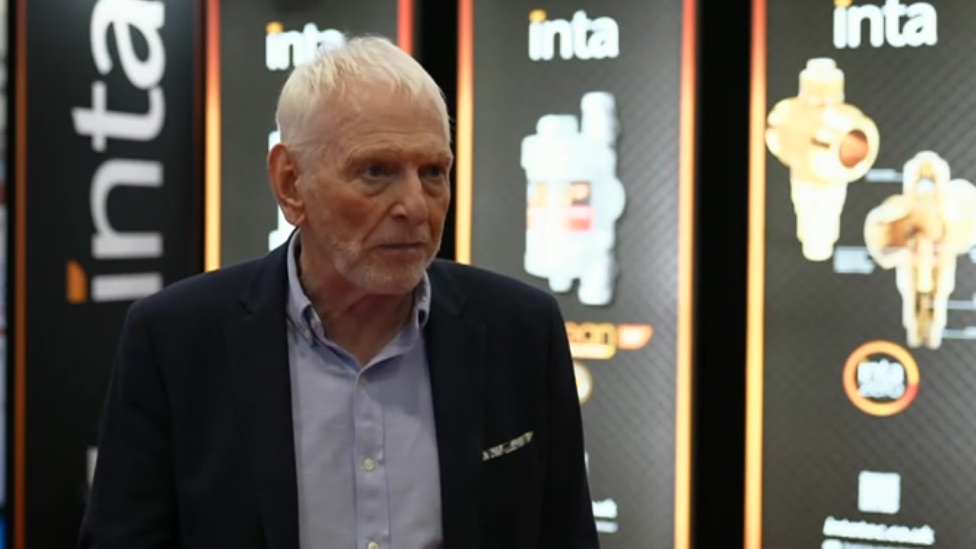
Stuart Gizzi said it was important to get the right installer
Back at the NEC, we spoke to Stuart Gizzi, from Staffordshire-based firm Inta, which has made components for boilers for 30 years and has adapted them for the heat pump market.
He told us you have to make sure you fit the right pump to the right property and in a new market not all installers have enough knowledge yet.
He added getting at least three quotes with a survey was vital.
A well-installed heat pump is much like a new electric car. You can feel a bit smug, the running and servicing costs will be low and the lifetime will be long.
However just like a car it is a big upfront cost. But as they move further into the mainstream that will start to fall.

Follow BBC West Midlands on Facebook, external, Twitter, external and Instagram, external. Send your story ideas to: newsonline.westmidlands@bbc.co.uk, external
Related topics
- Published24 January 2023

- Published1 April 2022
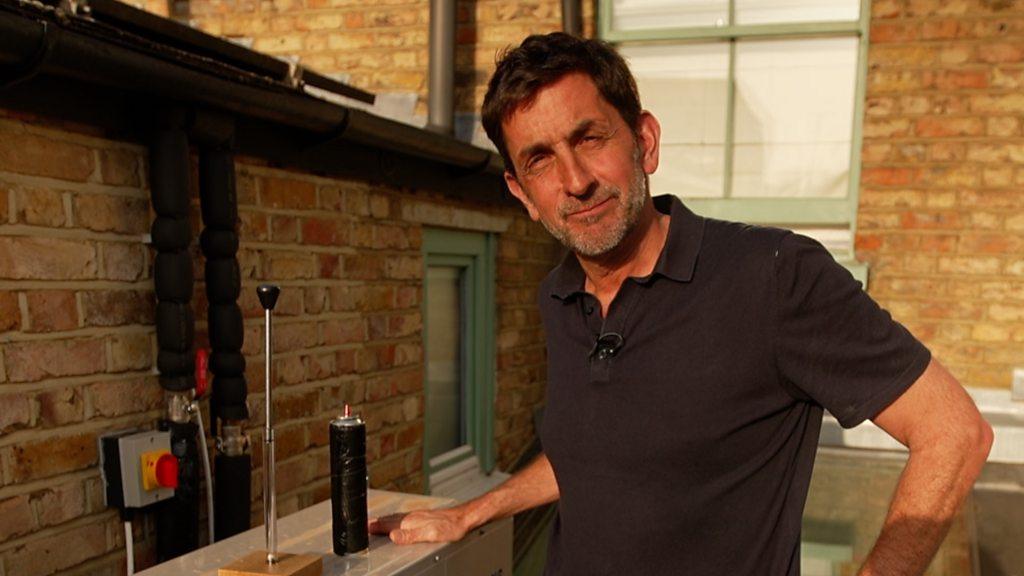
- Published18 March 2022
